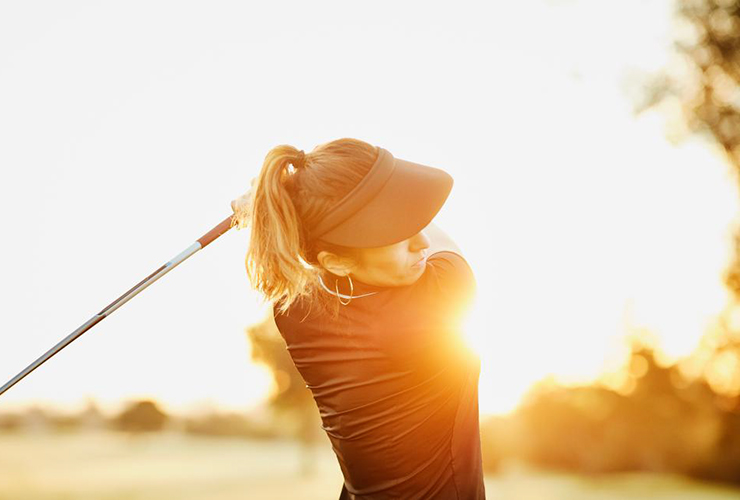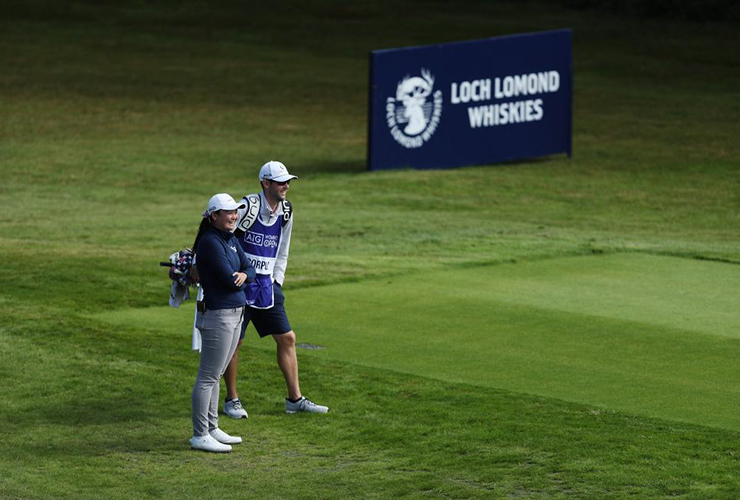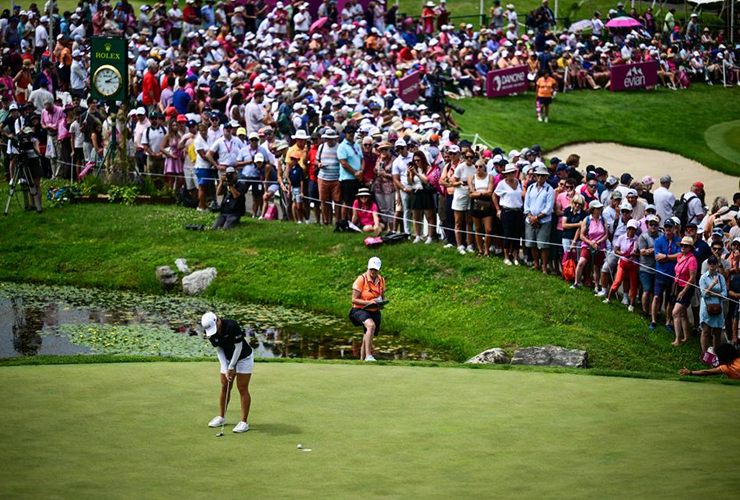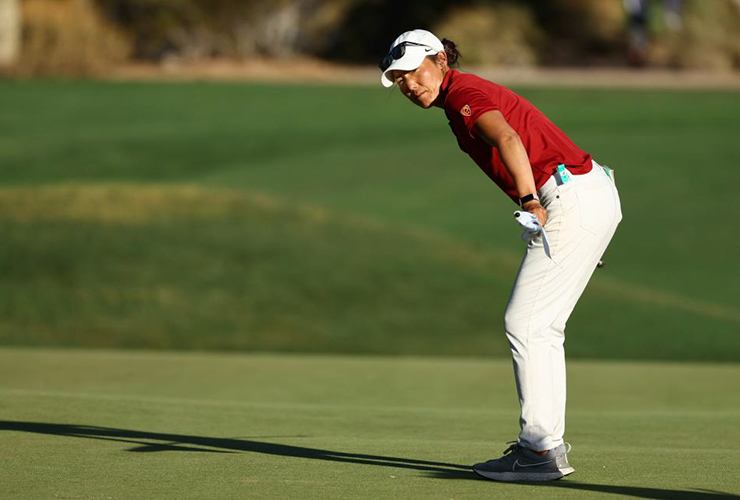Tiffany Joh knows a lot about what makes some of the best young golfers in the country so great. She was one herself (winning the U.S. Women’s Amateur Public Links in 2006 and 2008) before competing for 11 years on the LPGA Tour.
After retiring as a player, she got into coaching and recently accepted a new position helping oversee the new U.S. National Development program. Part of her role is supporting the USGA’s U.S. Junior National Team, which had eight players compete at this week’s U.S. Girls’ Junior Championship.
If you’re watching the championship at El Caballero Country Club in Tarzana, California, and wondering how to get the junior golfer in your life to the next level of competitive golf, Joh has some tips.
Don’t be a one-way player

Thomas Barwick
“I think the biggest thing is adaptability,” Joh said. This means being able to adjust to different courses, weather, scenarios on the course, etc. “I think one way to do that is to play other sports. I wish I had done that. I think I maybe specialized a little too much, and now you’re seeing all these golfers on the PGA and LPGA tours and they’re all-around athletes. If you play other sports, whether it’s tennis or surfing or whatever, the more body awareness you have, the better you get at adapting later on down the road.”
Having athletic ability can help you become more adaptable on the golf course, and the only way to build athleticism is to play sports. The temptation to focus only on golf can be strong, but playing a variety of sports into your teenage years will help build the strength and coordination necessary to becoming adaptable.
Know your yardages

Kate McShane/R&A
Most junior players probably have a general sense of how far they hit each club. But no two days on the golf course are the same. Gauging how your body feels and understanding how that will affect your ball flight is the next level of knowing your yardages. Joh said this is something they worked on a lot when she worked as an assistant college coach at USC.
“How well do you know your carry numbers? And a lot of that is understanding where your body is at in that point in time,” Joh said. “Did you work out the day before and are you kind of sore? How does cold affect your ball flight?”
Joh said when 2023 U.S. Open champion Allisen Corpuz was on the USC team, she would come in and say, “I’m a little tired, I’m going to carry two yards shorter today.” And then she would get on the simulator and be exactly right. That’s how in tune she was with her body.
To get great body awareness like Corpuz, Joh says to keep a journal. Check your yardages consistently and write down next to the numbers how you felt that day. You’ll soon be able to see patterns. After you’ve been keeping your yardages for a while, start to test yourself by predicting what your yardages are going to be based on how you feel that day.
Learn green speeds

Olivier Chassignole
“I think a big part of learning green speed is putting on different surfaces, playing on different golf courses and putting on different kinds of grass,” Joh said. “When I was in junior golf, I played at Torrey Pines all the time. That was my home course, and I had really good speed—but just at Torrey Pines. You took me anywhere else and it took me a while to adapt to the speed of the green.”
Joh says that when you get the opportunity to play other courses, take it. And while you’re there, “the more intentional you are when practising or playing on those surfaces, the better. Don’t just go and play another golf course, go and play a competitive round against a friend of yours at that golf course.”
Follow Joh’s suggestions and you, or the junior golfer in your life, just might be able to get to the next level.
Main Image: Justin Tafoya









